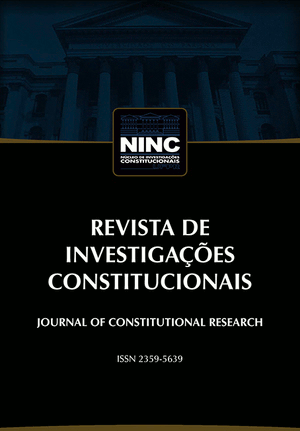Abstract
This paper seeks to analyze measures that restructure courts, especially the Brazilian Supreme Federal Court, to verify the compatibility of such changes with the principle of separation of powers. This proposal draws its importance from the study of legislative changes that, at first glance, seem legitimate, but when analyzed contextually, reveal marks of deep unconstitutionality due to violation of the distribution of powers and the system of checks and balances. A comparative law study was then carried out to see how this process has happened in other countries that are or have been democracies (USA, Venezuela, Hungary, and Poland). From this analysis, and using an inductive argument, a concept was developed for the phenomenon here called “court taming”, as well as a typology that allows an objective analysis of cases. Armed with this tool, four potentially characterizing situations of “domestication” were investigated in the national territory. In the final sections, it was demonstrated that the events that occurred in Brazil are cases of court taming, representing a violation of the separation of powers and therefore being unconstitutional. An interpretation was also presented that can prevent the occurrence of the taming phenomenon.
Keywords:
judicial independence; court taming; separation of powers; constitutional design
